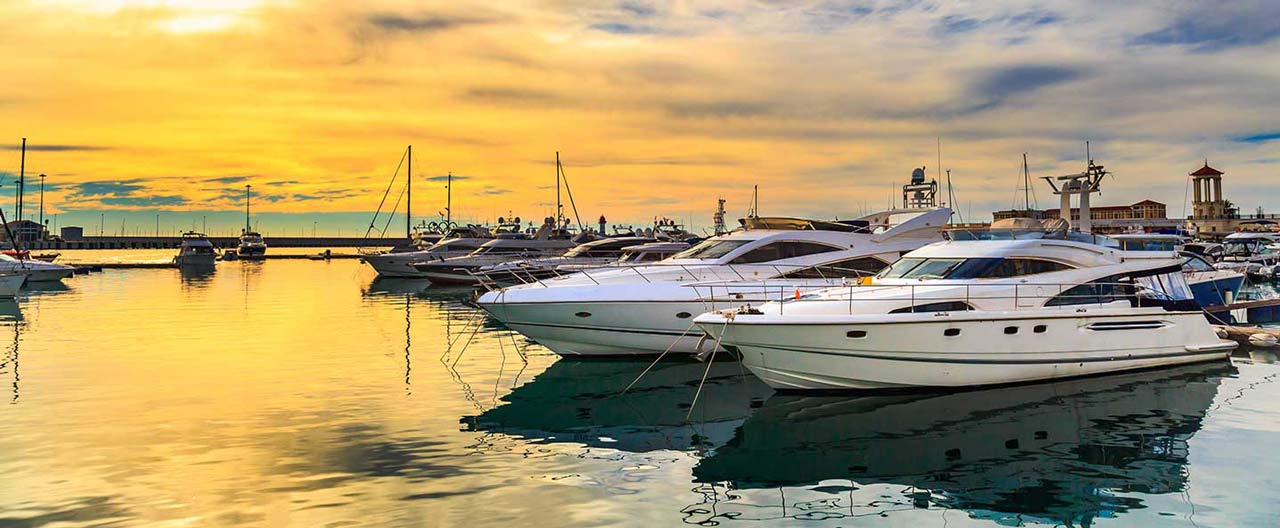Whether you’ve just purchased a boat or yacht or have had one for years, where you keep it when you’re not using it is almost as important as the vessel itself. That’s why it’s so essential to do your due diligence before choosing a marina, yacht club, or other facility. Below are a few things to consider.
1. Reputation.
The boating community is very small and vocal. Ask other boaters or locals what they think about the facility you’re interested in and search online for reviews.
2. Location.
Consider the location of the marina itself, as well as the location of your slip at the marina. Make sure your slip is protected from wind, waves, and vessel traffic. Wave action can do a lot of damage to moored vessels, as can other boats if they don’t have enough room to maneuver. How close is your slip to the open water? If the facility is in an exposed location, do they have wave attenuators installed to protect boats?
3. Slip length, space, location, and depth.
The more room you have to maneuver, the better. For example, if your boat has a 10’ beam and the marina offers you an 11’ wide slip, it will be challenging to get the boat in and out without contact between the boat and the dock. If your vessel is difficult to maneuver in tight quarters, look for a slip toward the end of the pier. If your vessel has a deeper draft, ensure you can get in and out of the marina and your slip at low tide.
4. Availability of dock utilities and facilities.
While some marinas may have a lower slip fee, they may not have the facilities to let you pump out your engine head, get gas, or haul out. Here are some features to look for:
- Fuel docks with well-maintained above-ground tanks
- Consider a facility with Wi-Fi, which can come in handy (you may not need phone and cable TV these days)
- Utilities such as water and electricity/shore power are also convenient and important for preventative maintenance
5. Yard maintenance services.
More sophisticated facilities will offer services, such as:
- Spring commissioning, dry storage, and winterizing
- Haul-out and drop-in services (with capabilities for hauling large boats). Check to ensure your vessels beam and tonnage can be tolerated by the facility’s lift in the event an emergency haul-out is needed.
- The ability sell, service, and repair your engines, and that the work is performed by reputable, well-qualified technicians. This is very important as outboard engines, specifically, have become highly computerized and require authorized, highly trained service technicians to work on the motor.
- Pressure washing (available throughout the season)
- Gelcoat or fiberglass repairs
- Qualified electronic service technicians
- Painting, varnish, or bright work
- Wash, wax, and detailing
- Bottom painting
- Yard space for DIY yard service and repair, including access to water and electricity. Check to make sure you can (a) work on your own vessel, and (b) hire your own labor if needed.
6. Maintenance of the facility.
If the facility doesn’t take care of its buildings and area, how will they care for your boat? If there is trash on the ground, overflowing trash cans, or the docks are in disrepair, consider looking elsewhere. Also consider the safety, stability, and condition of the docks, cleats, and power pedestals when evaluating a marina—premium facilities often have lighted docks.
7. Storm preparation plans.
Consider asking these questions:
- What is their plan should a windstorm or hurricane come through?
- What services do they provide, such as haul-out capabilities, to help you protect your watercraft?
- Will the boats that are less protected from the open water be moved to different locations of the marina before a storm?
- Do you have the proper gear needed to protect your boat (fenders, lines, removing canvas, charged battery for bilge pumps, etc.
8. Security.
Unfortunately, it is fairly easy for small boats and the equipment inside them to be vulnerable to theft. When considering a marina, look for gates, security cameras, lighting, and security guards. The more security that the facility has, the better.
9. Availability of life-saving equipment.
Make sure that the facility is equipped with items to help individuals should they be in any life-threatening danger, including CPR equipment, fire extinguishers, life jackets, and egress ladders.
10. Insurance.
Evaluate the insurance of the facility and any insurance requirement that they might have for you.
11. Other available services and amenities.
If you’re interested in additional features such as events, dining, clubhouse, or recreational areas, you’ll want to review those amenities when evaluating a marina or yacht club as well.
Consider all these factors when choosing your next marina or yacht/boat club, so you can maximize the time you enjoy being at the dock and out on the water.
Insights and expertise
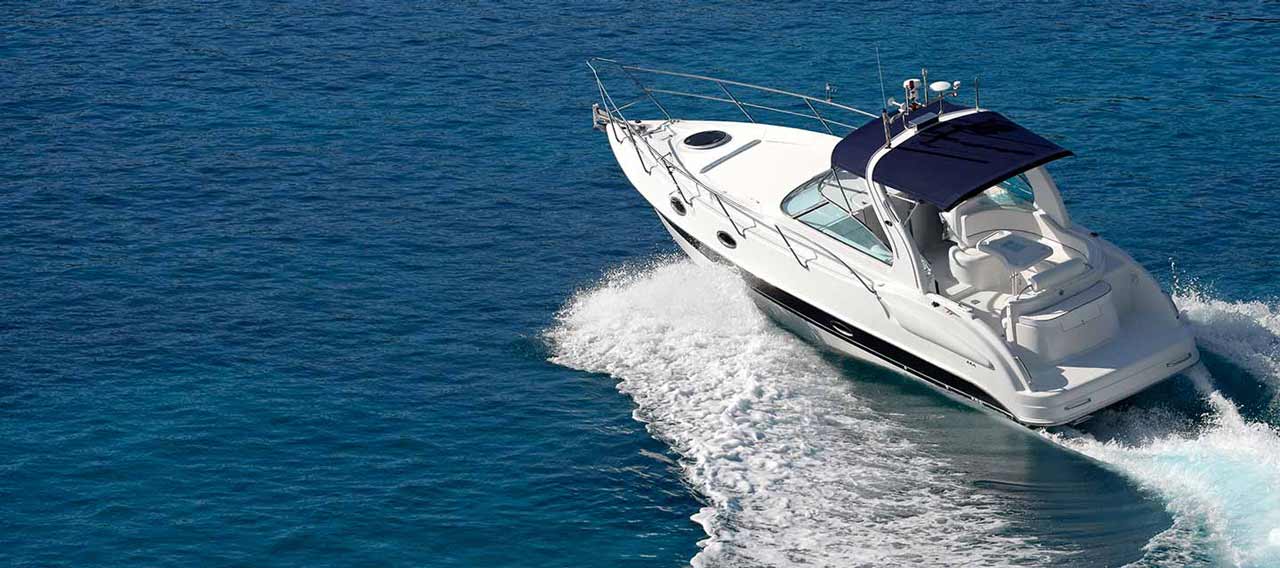
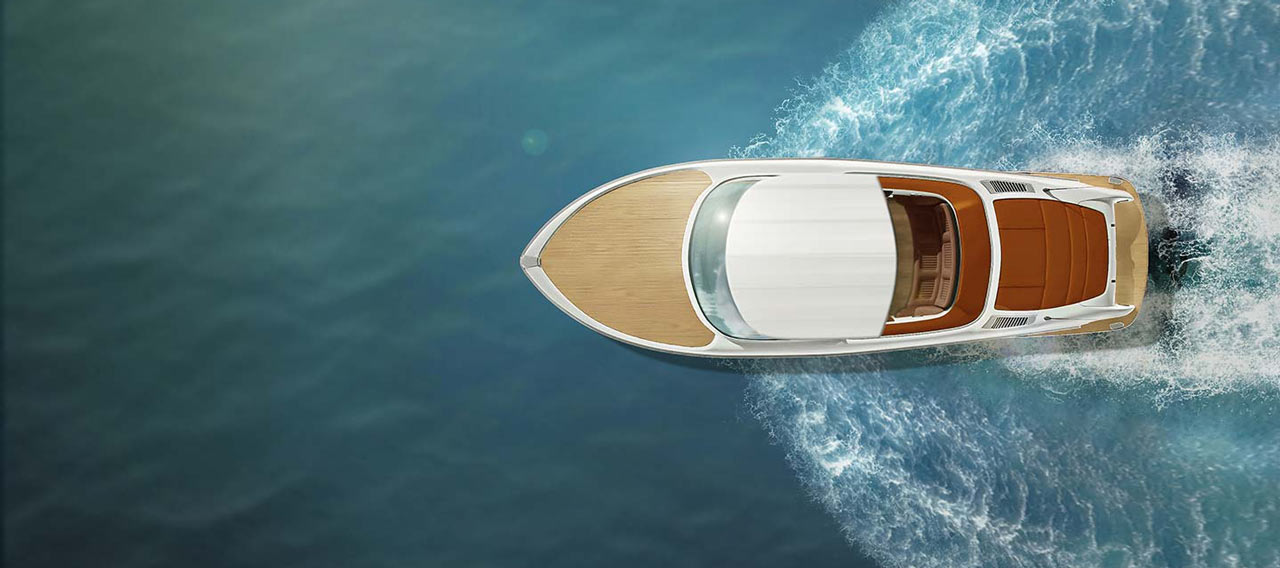
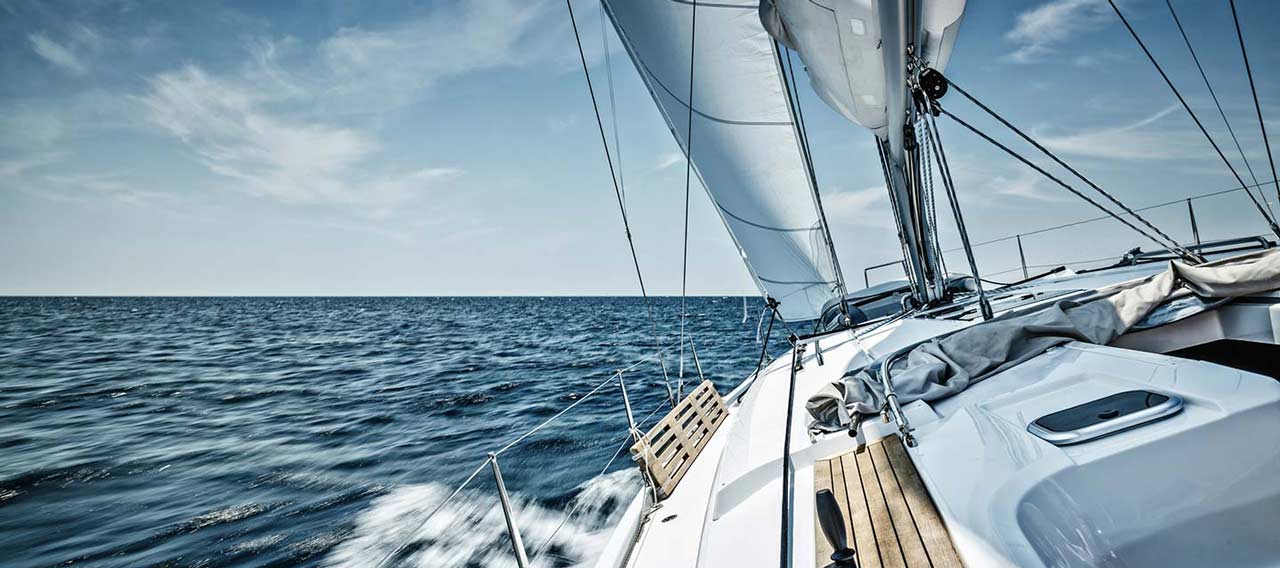
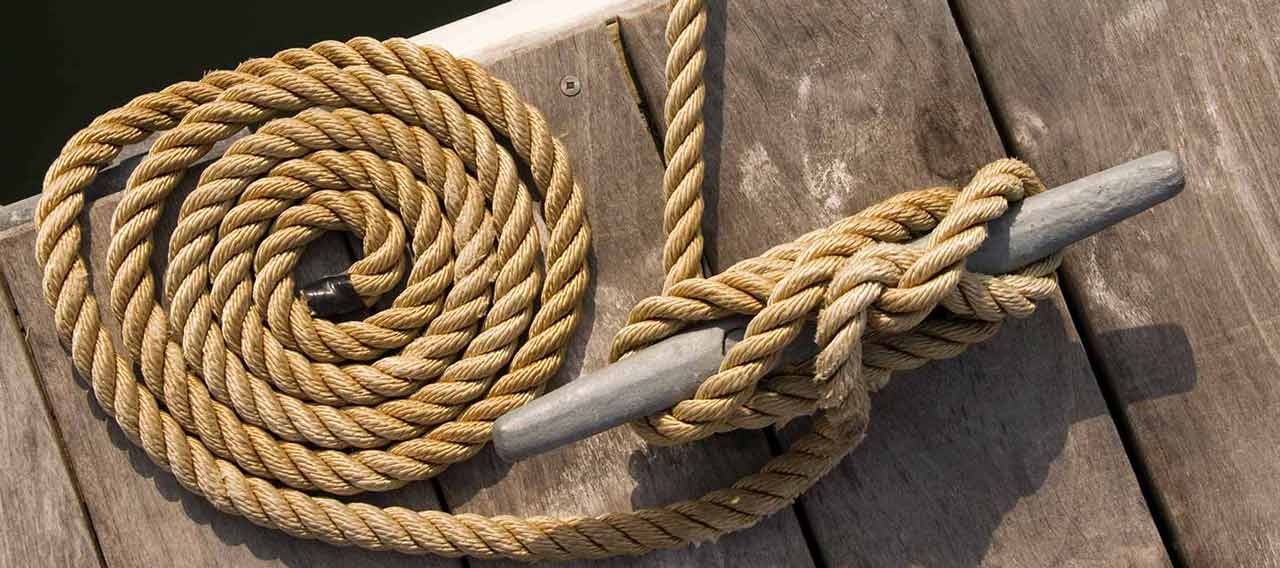
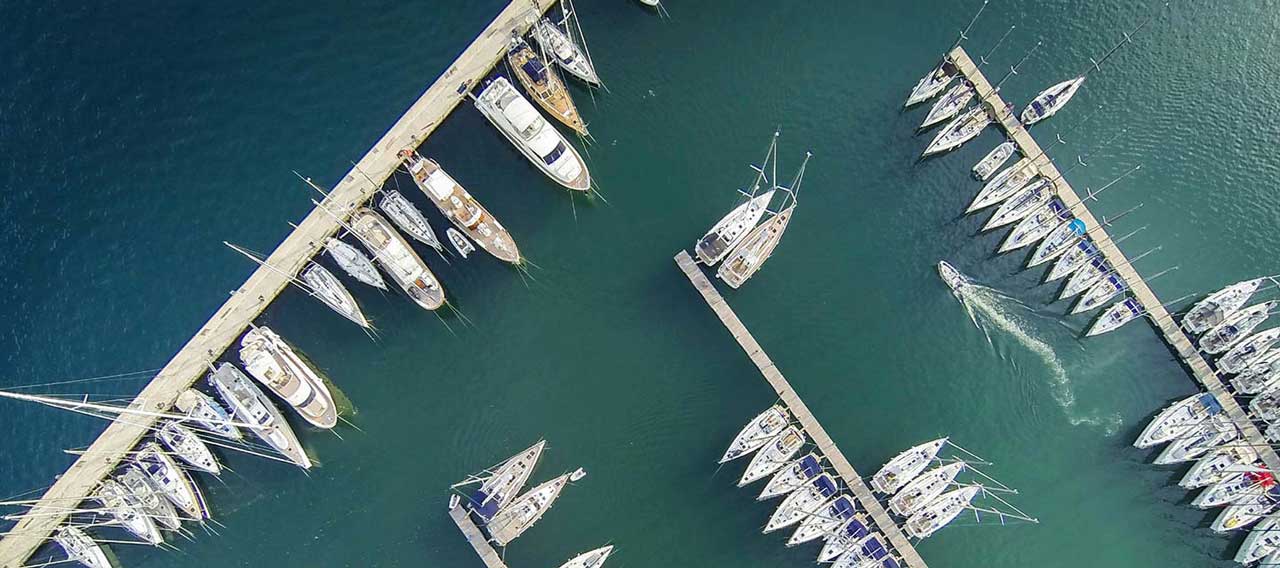
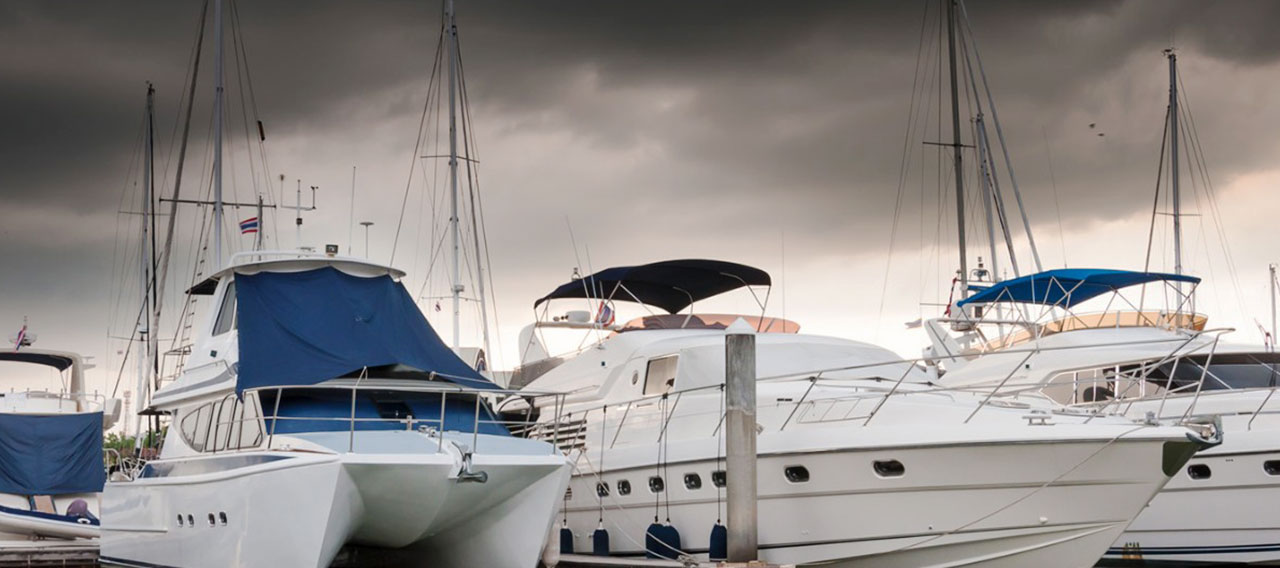
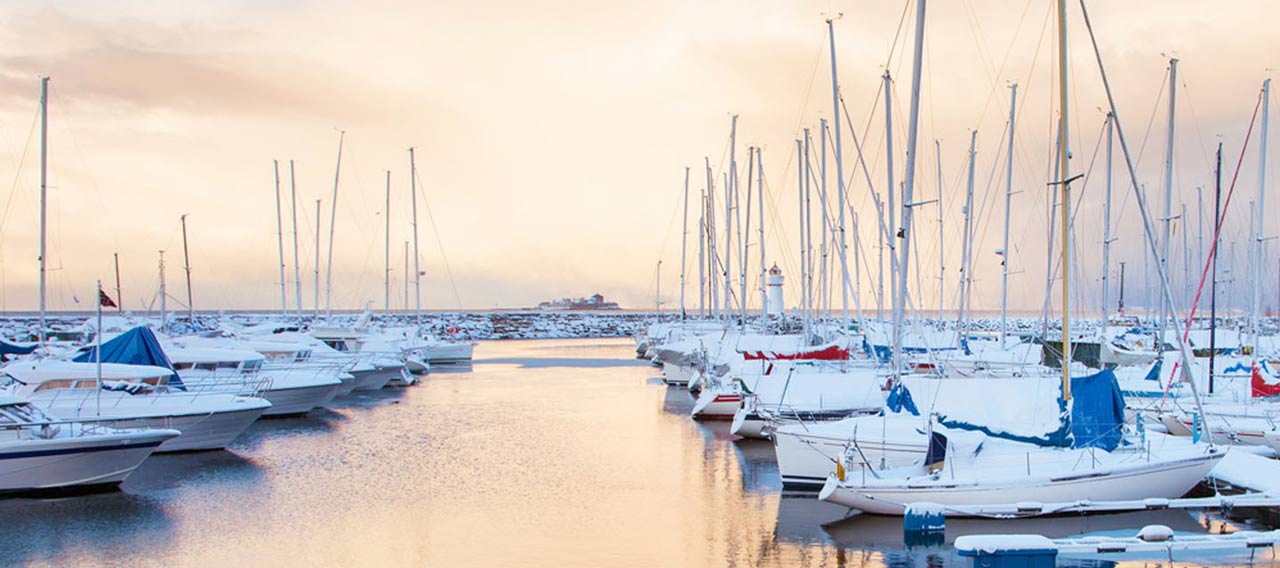
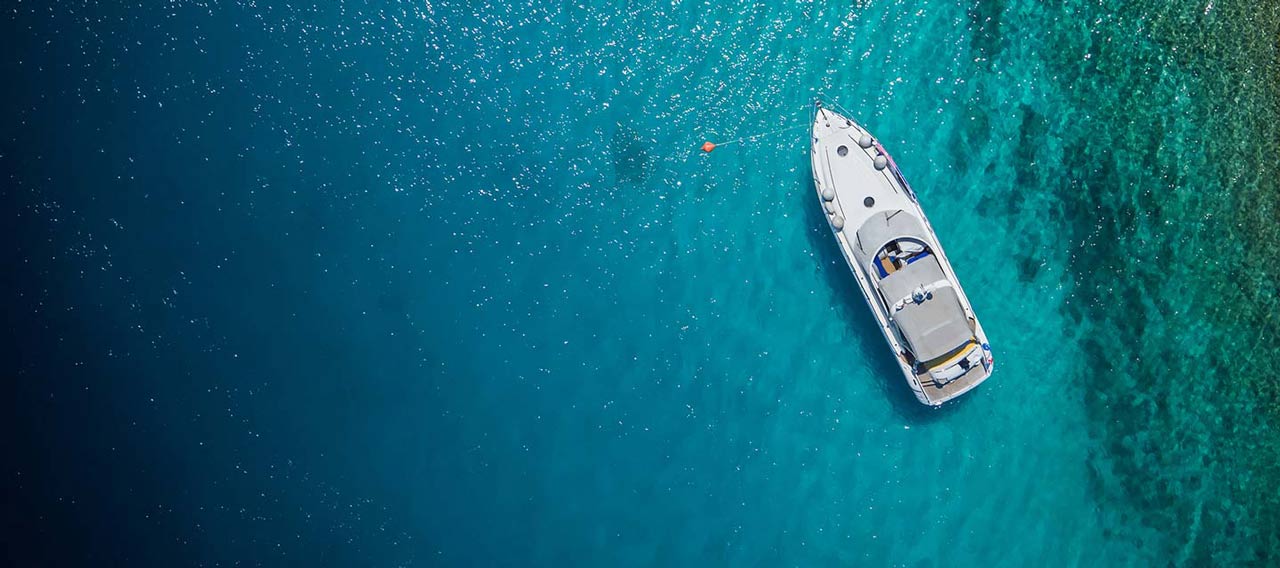
This document is advisory in nature and is offered as a resource to be used together with your professional insurance advisors in maintaining a loss prevention program. It is an overview only, and is not intended as a substitute for consultation with your insurance broker, or for legal, engineering or other professional advice.
Chubb is the marketing name used to refer to subsidiaries of Chubb Limited providing insurance and related services. For a list of these subsidiaries, please visit our website at www.chubb.com. Insurance provided by ACE American Insurance Company and its U.S. based Chubb underwriting company affiliates. All products may not be available in all states. This communication contains product summaries only. Coverage is subject to the language of the policies as actually issued. Surplus lines insurance sold only through licensed surplus lines producers. Chubb, 202 Hall's Mill Road, Whitehouse Station, NJ 08889-1600.










